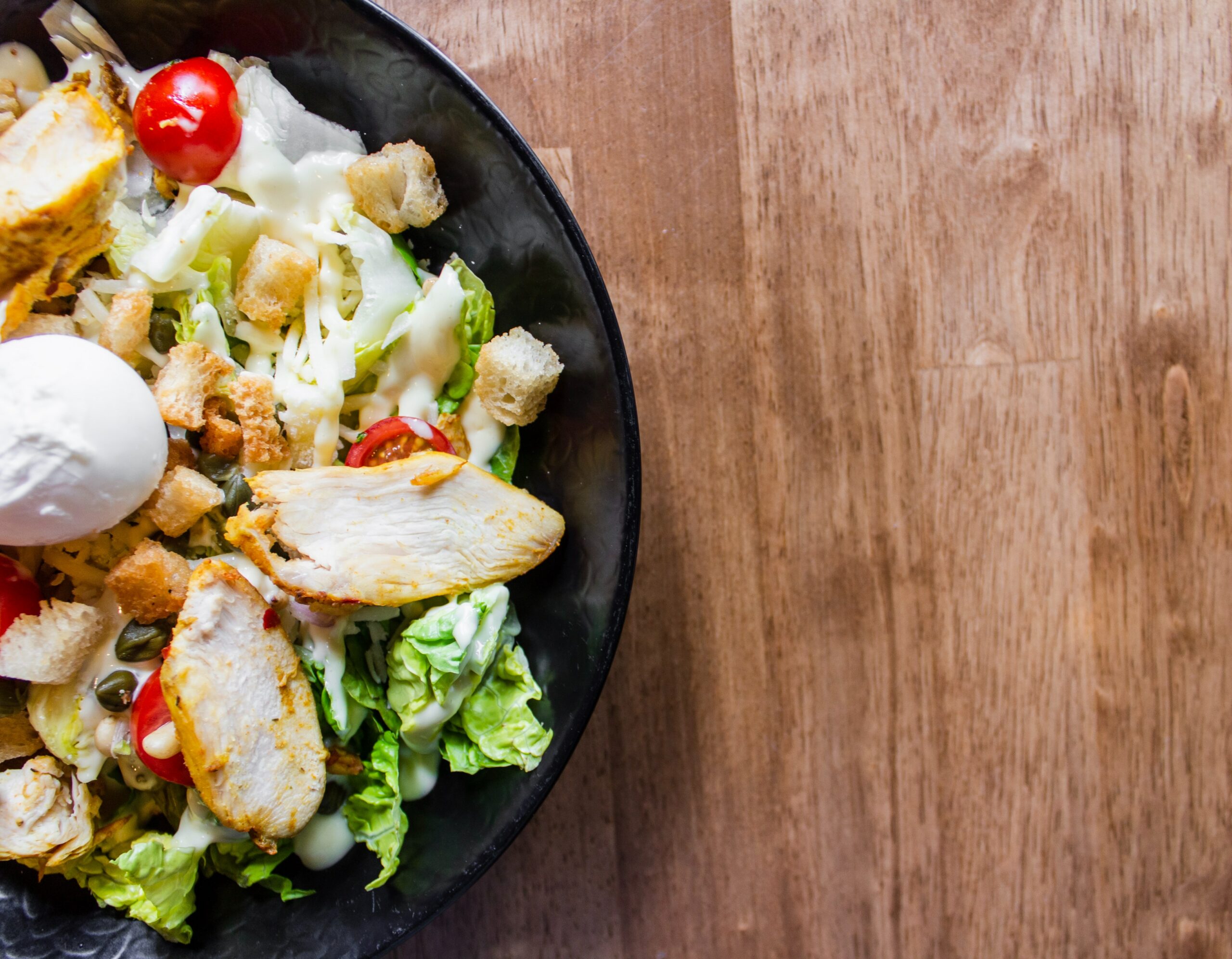
The Importance of Calorie Intake for Weight Loss
Losing weight can be challenging, and many factors can affect your success. One of the most critical factors in losing weight is creating a calorie deficit. That means you must consume fewer calories than your body burns daily.
Eating fewer calories than your body needs must burn stored fat for energy, resulting in weight loss. Your calorie intake is crucial in achieving and maintaining a healthy weight.
If you consume too many calories, you will gain weight; if you eat too few calories, you will lose weight. Therefore, it is essential to understand how many calories your body needs to maintain its current weight and how many calories are required to create a caloric deficit.
Brief Overview of the Topic
The topic we are exploring is how many pounds you will lose each week if you eat 1200 calories per day. This article aims to provide readers with an understanding of the science behind caloric deficits and their effects on weight loss.
We will also discuss the 1200-calorie diet plan and weekly weight loss rates based on daily caloric deficits. Knowing how much energy our bodies require daily is essential for losing or gaining weight.
The number of calories needed varies from person to person depending on age, gender, height, and lifestyle habits such as physical activity level or occupation type because each human body has unique metabolic rates that determine energy expenditure levels. In this article, we aim to explore what happens when we restrict our caloric intake to 1200 per day and consistently calculate how much fat it burns every week by creating suitable meals that include various nutrients like protein and fiber while remaining under specific macronutrient ratios.
By the end of this article, readers will have a sound understanding of the number of pounds they can expect to lose per week on a 1200-calorie diet plan. We will also provide tips and advice for successful weight loss using a 1200-calorie diet plan.
Understanding Calories and Weight Loss
Explanation of Calories and Their Role in Weight Loss
For anyone trying to lose weight, understanding calories is fundamental. A calorie is a unit of energy our body uses to function correctly and perform daily activities.
Every food we eat contains calories, and when we consume more calories than our body needs, the excess gets stored as fat, leading to weight gain. Conversely, when we consume fewer calories than our body needs, we create a calorie deficit which leads to weight loss.
The number of calories you need daily depends on various factors such as age, gender, height, weight, and activity level. To lose weight effectively, it’s essential to calculate your daily caloric intake requirements to achieve a calorie deficit that is safe but also sustainable.
The Science Behind Calorie Deficit and Weight Loss
Weight loss occurs when the body burns more calories than it consumes through diet or exercise. Creating a calorie deficit by consuming fewer calories than your body requires stimulates the body to burn stored fat for energy leading to weight loss.
To achieve a healthy rate of weight loss (1-2 pounds per week), you need to create a moderate caloric deficit that doesn’t exceed 500-1000 calories per day. This deficit can be achieved through diet, exercise alone, or combining both approaches.
Factors That Affect Weight Loss Rate
While creating a moderate caloric deficit is crucial for effective weight loss, several other factors affect the speed at which you lose weight: 1) Basal Metabolic Rate (BMR): The number of calories your body burns while resting. 2) Total Daily Energy Expenditure (TDEE): The total calories your body burns daily, including physical activity. 3) Age: As you age, metabolism slows down, causing fewer burned calories.
4) Gender: Men have more muscle mass than women, which results in a higher BMR and TDEE. 5) Hormones: Hormonal imbalances can make it harder to lose weight.
6) Genetics: Your genes may affect your predisposition to store fat and how easily you lose weight. Understanding calories is critical for successful weight loss.
Creating a moderate caloric deficit will encourage your body to burn stored fat, leading to safe and sustainable weight loss. It’s important to factor in all the variables that may impact your calorie needs and the rate at which you lose weight.
1200 Calorie Diet Plan
Overview of a 1200-calorie diet plan
A 1200-calorie diet plan is a low-calorie diet that can help you lose weight. It aims to create a calorie deficit by reducing your daily calorie intake to 1200 calories.
This meal plan may be suitable for people who are inactive or have a low metabolic rate. However, it is essential to note that this diet requires careful planning and the right food choices to ensure your body receives all the vital nutrients it needs.
Daily meal plan
When following a 1200-calorie diet, you must plan your meals carefully for optimal results. The meal plan should consist of three main meals and two snacks daily, averaging around 300-400 calories.
For example:
- Breakfast: A hard-boiled egg, whole-grain toast, and fruit (300 calories)
- Morning snack: Greek yogurt with berries (100 calories)
- Lunch: Grilled chicken breast, quinoa salad with vegetables (350 calories)
- Afternoon snack: Apple slices with almond butter (150 calories)
- Dinner: Baked salmon fillet, steamed vegetables, and brown rice (400 calories)
It is essential to note that this is just an example of what a 1200-calorie meal plan could look like. You can customize your meals based on your dietary needs and preferences.
Nutrient distribution
A balanced nutrient distribution is crucial when following a 1200-calorie diet as it helps ensure you get all the necessary vitamins, minerals, and macronutrients for optimal health. The general rule of thumb is that you should aim for about:
- 45-55% of calories from carbohydrates
- 20-30% of calories from protein
- 25-35% of calories from healthy fats
To achieve this, it is essential to incorporate nutrient-dense foods into your meal plan. This includes fruits, vegetables, whole grains, lean proteins, and healthy fats such as avocado and nuts.
Food options and restrictions
Following a 1200-calorie diet doesn’t mean you must give up all your favorite foods. However, making intelligent food choices that fit your daily calorie limit is essential. You should aim for plenty of nutrient-dense foods that are low in calories but high in fiber and protein.
Some examples include:
- Fruits: Berries, apples, oranges.
- Vegetables: Leafy greens, broccoli, carrots.
- Grains: Quinoa, brown rice.
- Proteins: Chicken breast, turkey breast.
- Dairy: Greek yogurt.
- Fats: Avocado, nuts.
Avoid or limit high-calorie and low-nutrient foods such as processed snacks and sugary drinks. Following a 1200-calorie diet plan can help you lose weight effectively if done right.
You must consume enough nutrients to meet your body’s needs while staying within the daily calorie limit. With the proper meal planning and food choices, you can achieve weight loss success while also maintaining optimal health.
How Many Pounds Will You Lose a Week Eating 1200 Calories a Day?
Regarding weight loss, the amount of calories you consume is crucial. Eating fewer calories than your body needs results in weight loss, and when you eat 1200 calories a day creates a significant caloric deficit.
However, how much weight can you lose each week by following a 1200-calorie diet plan? The answer lies in calculating your daily caloric needs for weight loss.
Calculation of Daily Caloric Needs for Weight Loss
The two most important factors determining your daily caloric needs for weight loss are basal metabolic rate (BMR) and total daily energy expenditure (TDEE). BMR is the number of calories your body burns at rest to maintain essential bodily functions like breathing and circulation. TDEE is the number of calories you burn daily through all activities, including exercise and non-exercise activities like cooking or cleaning.
Basal Metabolic Rate (BMR) Calculation
To calculate your BMR, use an online calculator or formula that considers your age, height, weight, and sex. One famous formula is the Harris-Benedict equation. Once you have calculated your BMR, multiply it by an activity factor corresponding to your lifestyle to determine TDEE.
Total Daily Energy Expenditure (TDEE) Calculation
You can use online calculators or formulas like the Mifflin-St Jeor equation to calculate TDEE based on age, height, weight, sex, and activity level. The result will show how many calories you need daily to maintain weight.
Determination of Weekly Weight Loss Rate Based on Daily Caloric Deficit
When you eat 1200 calories a day, you create a significant caloric deficit. The number of pounds you lose each week by maintaining this deficit depends on how much the daily caloric intake is below your TDEE. A safe and sustainable rate of weight loss is 1-2 pounds per week, which can be achieved by creating a daily caloric deficit of 500-1000 calories.
Average Weekly Weight Loss Rate for Different Caloric Deficits
The average weekly weight loss rate for different caloric deficits can vary depending on individual factors like age and sex. However, a daily calorie intake of 1200 calories generally creates a caloric deficit between 500-1000 calories per day. This would result in an average weekly weight loss rate of 1-2 pounds.
Factors That May Affect the Weekly Weight Loss Rate
It’s important to note that several factors may impact how much weight one loses while following a 1200-calorie diet plan. Metabolic rate, genetics, sleep quality, stress levels, and medication use are some factors that may affect weight loss rates.
Moreover, ensuring the diet plan provides all necessary macronutrients and micronutrients for optimal health while restricting calorie intake to achieve weight loss is essential. Inadequate nutrient intake may lead to fatigue, weakness, or other health problems, affecting long-term adherence to the diet plan.
To conclude, eating 1200 calories per day will create a significant caloric deficit leading to weight loss; however, it is essential to calculate your daily caloric needs based on BMR and TDEE before starting any diet plan. Understanding these numbers will give you an idea of how much weight you can expect to lose each week and determine a sustainable daily calorie intake to achieve and maintain weight loss goals.
Tips for Successful Weight Loss with a 1200-Calorie Diet Plan
Healthy Eating Habits to Adopt
While restricting your calorie intake is essential for weight loss, developing healthy eating habits that will help you maintain weight over the long term is also essential. Here are some tips for successful weight loss with a 1200-calorie diet plan: 1. Incorporate plenty of fiber: Fiber-rich foods like fruits, vegetables, whole grains, and legumes can help you feel fuller longer and prevent overeating.
2. Stay hydrated: Drinking water daily can help you avoid dehydration and reduce hunger pangs. 3. Choose lean protein sources: Protein is essential for building and repairing muscle tissue, but not all sources are equal.
Opt for lean protein sources like chicken breast, fish, tofu, or beans. 4. Avoid processed foods: Processed foods are often high in calories, sugar, and unhealthy fats.
Stick to whole foods as much as possible. 5. Don’t skip meals: Skipping meals can cause your metabolism to slow down and lead to overeating later in the day.
Conclusion
Following a 1200-calorie diet plan can be an effective way to lose weight if done correctly with the right balance of nutrients. However, it’s important to remember that every individual’s body is different; therefore, losing one pound per week may not be achievable or healthy for everyone. It’s crucial to listen to your body’s needs and adjust accordingly.
Incorporating healthy eating habits into your routine will help you achieve your weight loss goals while maintaining overall health and well-being in the long term. Remember that maintaining good health is more important than achieving unhealthy body goals at any cost!
